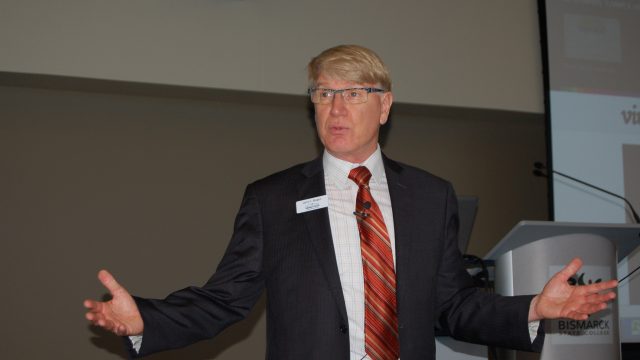Senate Committee Says Yes To Secret Evaluations For University Presidents

Heading into the 2015 legislative session one of the North Dakota University System’s top priorities was exemptions from open records laws. The state’s universities have put up a horrendous track record on transparency over the last several years, and it seems their solution to that problem is to remove records and meetings from public scrutiny.
One of the bills introduced by the NDUS was SB2134, which in its original form would have allowed any discussion of evaluations for the state’s higher education leaders to take place in executive session and would have exempted any materials used in those evaluations.
[mks_pullquote align=”right” width=”300″ size=”24″ bg_color=”#000000″ txt_color=”#ffffff”]It isn’t that the process of evaluating the performance of university presidents is too open to the public. It’s that we’ve got a bunch of limp noodles, bureaucracy-addled milquetoasts, in charge of the university system who are so afraid of taking on politically-powerful university presidents that the don’t wish to do so publicly.[/mks_pullquote]
Given that pretty much all public records related to a university could be used in an evaluation of that university’s president, it was an extremely broad exemption.
The bill has now emerged from the Senate Judiciary Committee amended to remove the exemption for records used in presidential evaluations. The bill would now only exempt public meetings considering evaluations for university presidents or the university system chancellor, or considering the appointment/removal of those people.
Here’s the amended text. The bill got a 5-1 “do pass” recommendation from the committee.
This is, to be sure, a much improved version of the bill, but I’m not convinced that there’s really any need for these exemptions. The university system has argued that they don’t feel they can be forthright in evaluations of university presidents without this exemption. Former State Board of Higher Education President Kirsten Diederich went so far as to suggest that the university system wouldn’t perform evaluations at all unless they can keep the process a secret.
To me that stance illustrates the real problem at the root of this issue. It isn’t that the process of evaluating the performance of university presidents is too open to the public. It’s that we’ve got a bunch of limp noodles, bureaucracy-addled milquetoasts, in charge of the university system who are so afraid of taking on politically-powerful university presidents that the don’t wish to do so publicly.
That’s a leadership problem, not a transparency problem.




